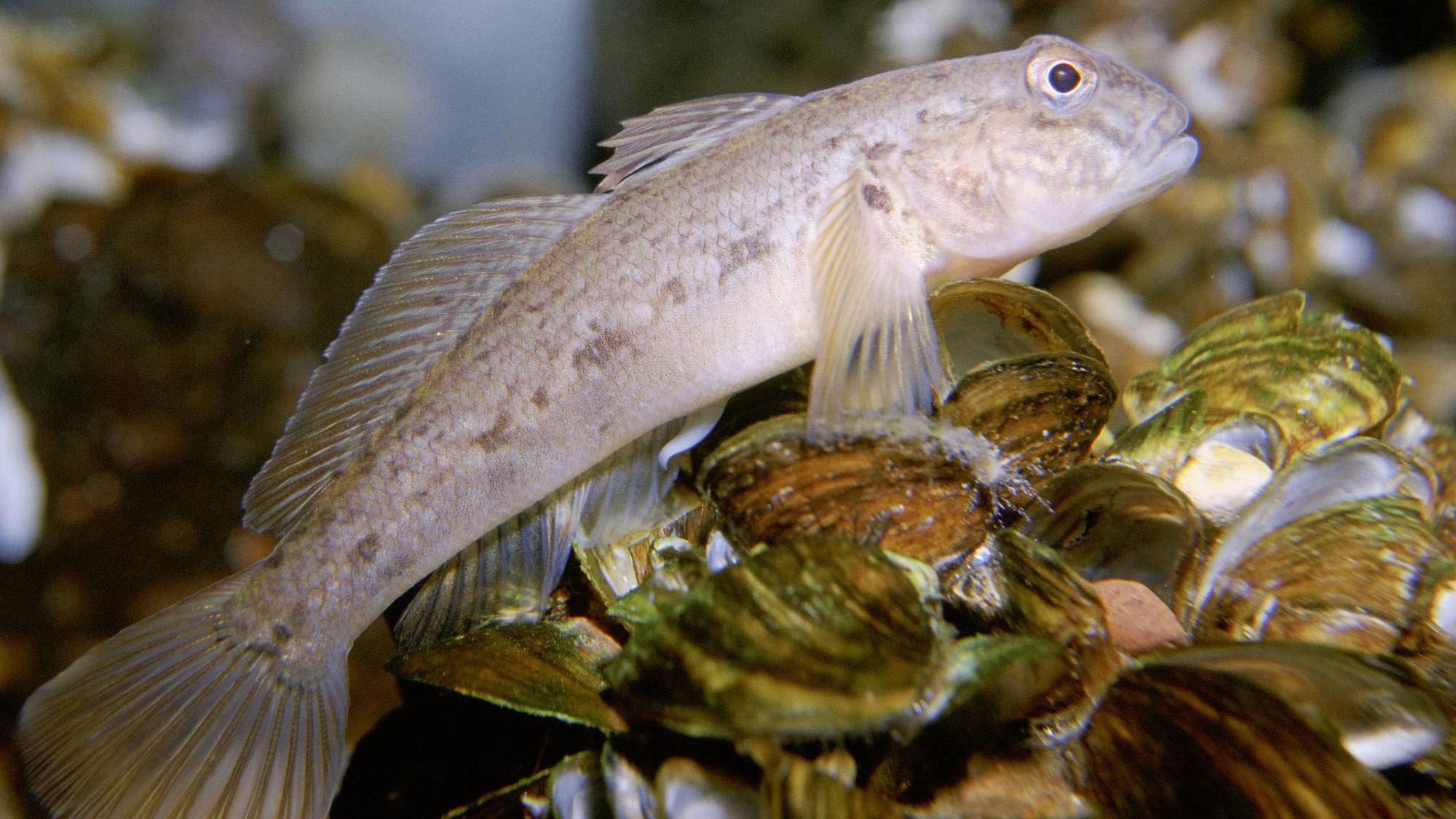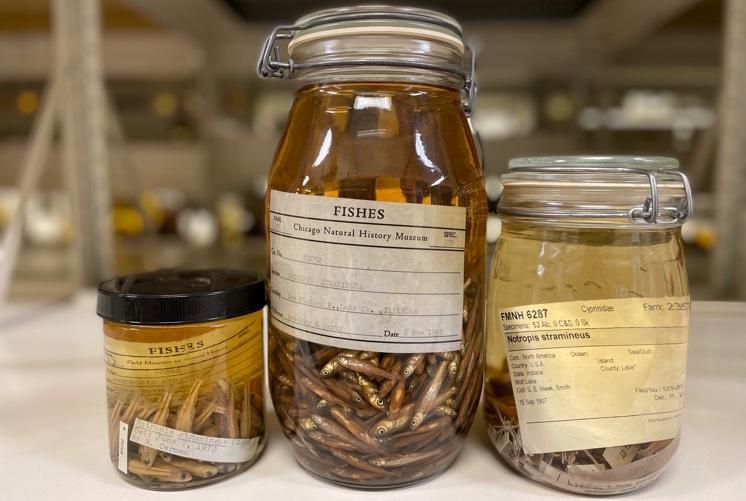 Specimens of the round goby were among the species included in the micro plastics study. (U.S. Fish and Wildlife Service / Eric Engbretson)
Specimens of the round goby were among the species included in the micro plastics study. (U.S. Fish and Wildlife Service / Eric Engbretson)
Concerns over the presence of microplastics in our food and water have been mounting in recent years, but it turns out the pollutants have been around much longer than people’s general awareness of them would suggest.
Thanks to our sponsors:
Researchers Tim Hollein and Loren Hou from Loyola University Chicago discovered microplastics in freshwater fish going back to the 1950s, findings they published in the journal Ecological Applications.
It’s a safe assumption that organisms have been exposed to plastic litter since plastic was invented, said Hollein, an associate professor of biology. But to prove that theory, he and Hou, a graduate student, had to overcome one significant hurdle: finding a sample population of fish from the past century.
The solution turned out to be the Field Museum, which has roughly 2 million fish specimens in its collections, mostly preserved in alcohol.
“You can’t do this kind of work without these collections,” Caleb McMahan, the museum’s manager of the fishes collections, said in a press statement. “We need older specimens, we need the recent ones and we’re going to need what we collect in the next 100 years.”
Among those specimens, McMahan, who’s also a co-author of the study, identified four fish species with records dating back to 1900.
“It’s essentially a way we can go back in time,” Hollein said.
Working with at least five specimens per past decade, he and Hou removed the fish’s digestive tracts and treated the contents with hydrogen peroxide, which breaks down organic matter but not plastic.
 Specimens of sand shiner fish in the Field Museum’s collections 1972, 1953, and 1907. Other fish in the study included largemouth bass, channel catfish and round goby. (Kate Golembiewski / Field Museum)
Specimens of sand shiner fish in the Field Museum’s collections 1972, 1953, and 1907. Other fish in the study included largemouth bass, channel catfish and round goby. (Kate Golembiewski / Field Museum)
The samples were then further analyzed by collaborators at the University of Toronto, who confirmed not only which ones contained microplastics — none before mid-century — but also the likely source, which might surprise people.
“They’re often from clothing,” said Hou, explaining that tiny threads of synthetic fabrics break off during the wash cycle and wind up in the water supply.
Hollein noted that clothing isn’t the first thing people think of when they hear the word “microplastics.” Raising awareness, he said, is the first step toward addressing the problem and perhaps changing behavior.
We can thank 100-year-old fish for the wake-up call.
“Sort of like the voice of those long dead organisms that are still telling us something about the state of the world today,” Hollein said.
Contact Patty Wetli: @pattywetli | (773) 509-5623 | [email protected]
Thanks to our sponsors:
Thanks to our sponsors:
April 30, 2021 at 05:28AM
https://ift.tt/3nFPD4T
New Revelations About Microplastics Found in Guts of 100-Year-Old Fish - WTTW News
https://ift.tt/35JkYuc
Fish
No comments:
Post a Comment